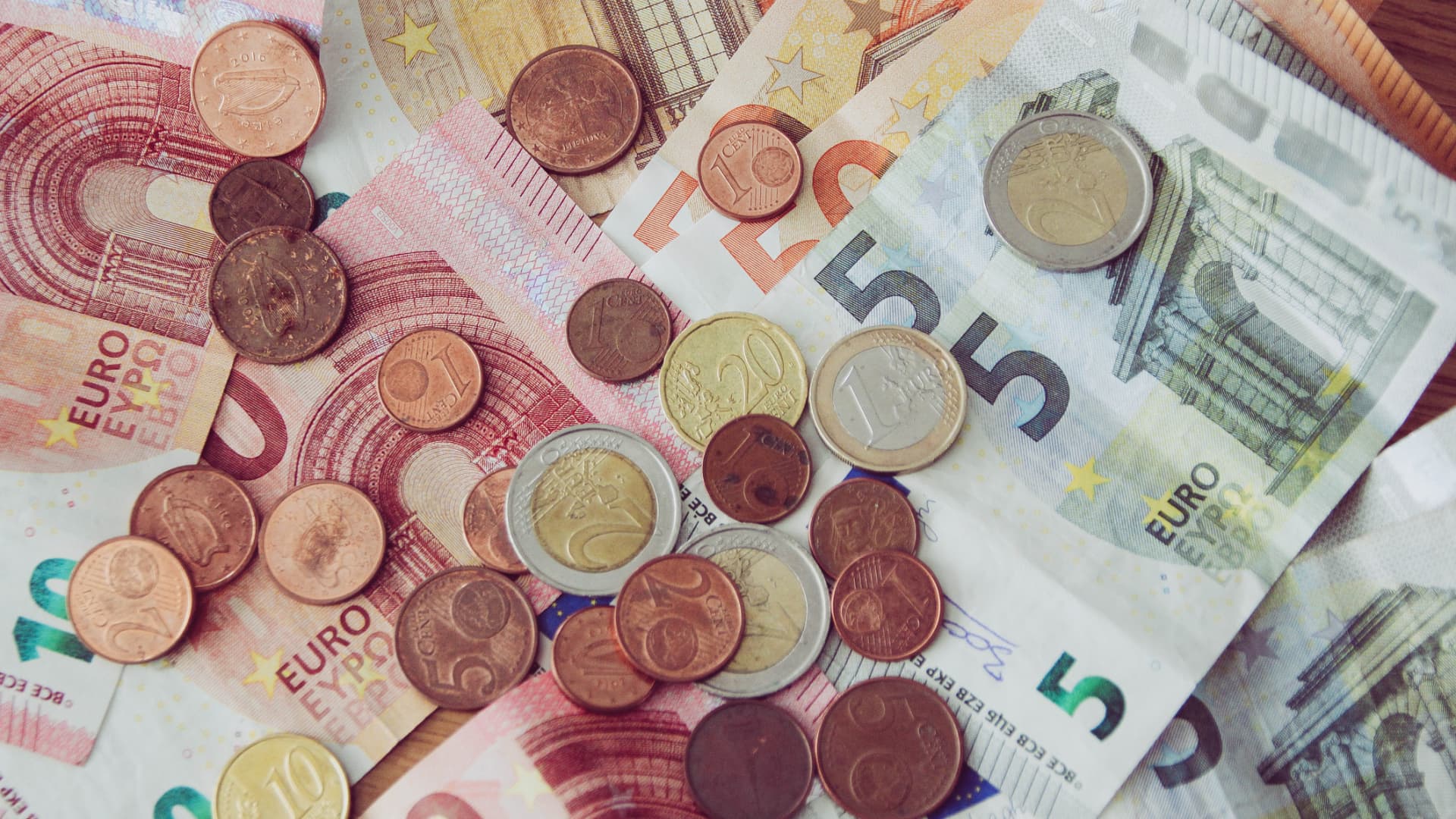
As if there wasn’t enough to worry about, now U.S. stocks with the most sales exposure to Europe face an additional headwind — the dollar is at a 20-year high against the euro . The slumping common currency, together with stagnant economic growth on the continent , means U.S. companies doing the most business overseas are likely to see watered down international earnings in the second half. Goldman Sachs constructed a basket of the 50 stocks in the Russell 1000 index that have the greatest percentage of sales in Europe, primarily Western and Northern Europe. At the time of a late June report from analysts led by David Kostin, that basket of stocks had underperformed the S & P 500 by 2.4 percentage points so far this year, and sold at a below-average forward p/e multiple. The median stock in the Goldman-screened basket gets 30% of sales in Europe, and a total of 58% of sales from outside the U.S. By comparison, the median stock in the S & P 500 derives 0% of revenues from Europe, and 29% internationally. Individual stocks carry far more currency risk than the median. Booking Holdings gets a whopping 79% of sales from Western Europe, according to the Goldman screen. The travel technology company has slid far more than the euro, tumbling 24% in the past month. Newmont Corp. derives 73% of sales in Western Europe, Hexcel Corp. 44%, Euronet Worldwide 43% and Axis Capital 41%, Goldman found. Rounding out the top 10 stocks are Janus Henderson Group and Philip Morris International , both at 39%, Align Technology and Manpower Group , both at 34% and West Pharmaceutical with 33% of sales in Western Europe, according to Goldman. Meanwhile, the crimp in overseas earnings may not get better soon. The euro Wednesday morning was trading below $1.02, and Nomura said Tuesday the common European currency might fall as low as 98 by August as the Federal Reserve continues to raise interest rates, boosting the appeal of holding U.S. dollars. That means that U.S. corporate profits denominated in euros will look weaker when translated into fewer dollars. The strength of the dollar is also a hurdle for companies with any international sales exposure, not just exposure to Europe. A Goldman basket of stocks with high domestic sales also outpaced those with high international sales. To be sure, some companies do hedge against currency exchange risks, which could partly shield them from the stronger dollar. But not every company hedges, and no one can hedge all their exposure. Other currency risks loom as well. The Japanese yen, for example, is near the weakest it’s traded against the dollar since 1998. — CNBC’s Scott Schnipper contributed reporting
